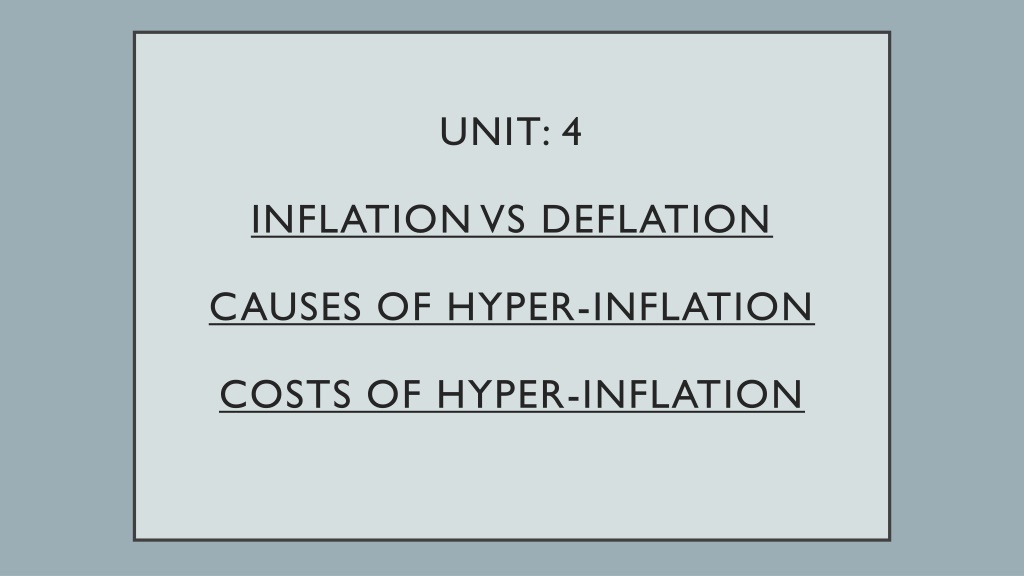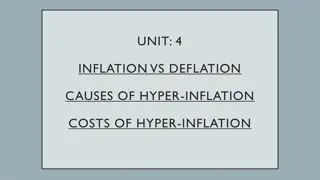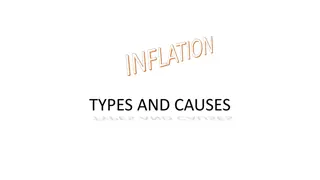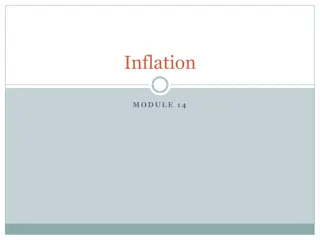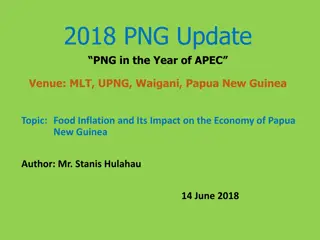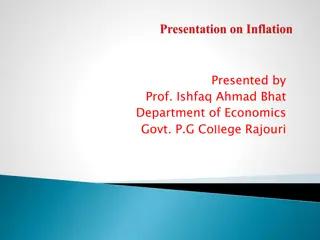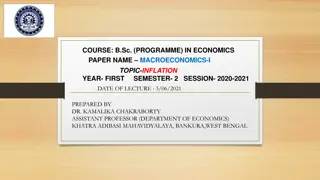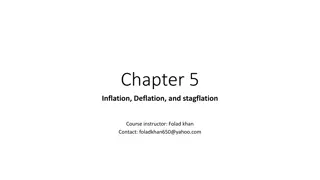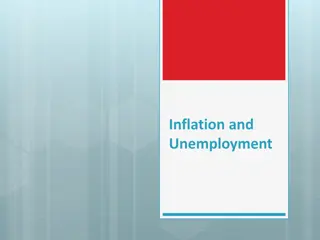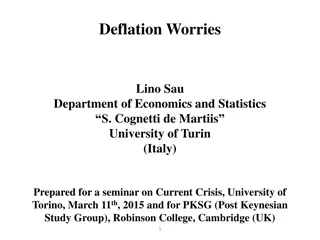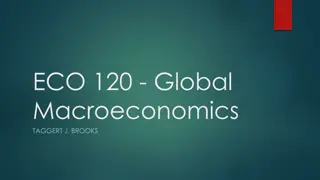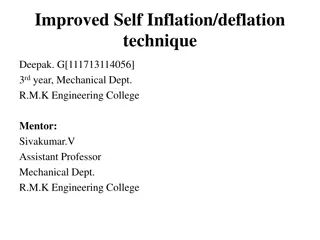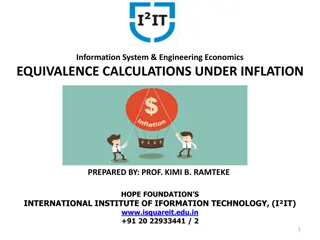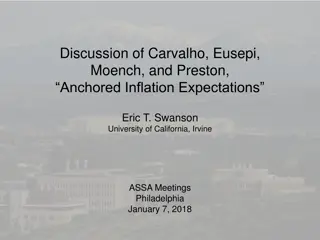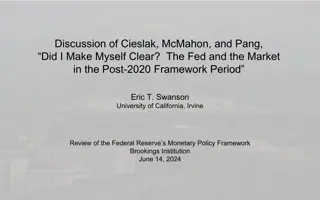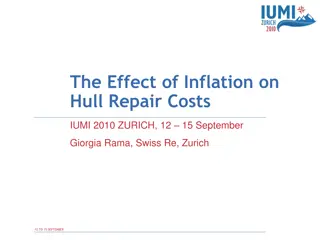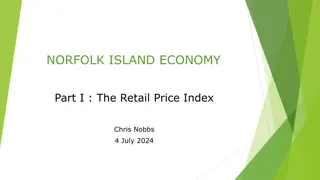Understanding Inflation vs. Deflation: Causes and Impacts of Hyperinflation
Inflation and deflation are two economic phenomena with significant impacts on the economy. Inflation, characterized by rising prices, benefits producers while deflation, marked by falling prices, benefits consumers. Hyperinflation, when prices skyrocket, is caused by increased money supply and demand-pull factors. It results in reduced savings value, menu costs, loss of confidence in the finance sector, and hindered economic growth. Understanding these concepts is crucial for economic stability.
Download Presentation

Please find below an Image/Link to download the presentation.
The content on the website is provided AS IS for your information and personal use only. It may not be sold, licensed, or shared on other websites without obtaining consent from the author. Download presentation by click this link. If you encounter any issues during the download, it is possible that the publisher has removed the file from their server.
E N D
Presentation Transcript
UNIT: 4 INFLATION VS DEFLATION CAUSES OF HYPER-INFLATION COSTS OF HYPER-INFLATION
KEY DIFFERENCES BETWEEN INFLATION AND DEFLATION When the value of money decreases in the world market, it is inflation, while if the value of money rises,then it is deflation. Inflation results in rising prices of goods and services, whereas prices of goods and services decrease in deflation. Inflation is helpful for producers or manufacturers. On the other hand, customers are benefited in deflation. There is a fall in national income in the situation of deflation, but this is not in the case of inflation. In inflation, the distribution of income is not even amidst rich and poor. Conversely, Deflation becomes a cause for a rise in the level of unemployment. A slight amount of inflation is good for the country s economy. However, deflation creates hurdles in the path of economic growth of the country.
CAUSES OF HYPER-INFLATION Hyperinflation is when the prices of goods and services rise more than 50% per month. At that rate, a loaf of bread could cost one amount in the morning and a higher one in the afternoon. Hyperinflation has two main causes: an increase in the money supply and demand-pull inflation. The former happens when a country's government begins printing money to pay for its spending. As it increases the money supply, prices rise as in regular inflation. The other cause, demand-pull inflation, occurs when a surge in demand outstrips supply, sending prices higher. This can happen due to increased consumer spending due to a growing economy, a sudden rise in exports,or more government spending.
Contd. The two often go hand-in-hand. Instead of tightening the money supply to stop inflation, the government might continue to print more money. With too much currency sloshing around, prices skyrocket. Once consumers realize what is happening, they expect continued inflation. They buy more now to avoid paying a higher price later. That excessive demand aggravates inflation. It's even worse if they stockpile goods and create shortages
COSTS OF HYPER-INFLATION 1. Value of Savings falls. In a modern economy, interest rates are usually higher than the inflation rate. For example, if inflation is 5%. Interest rates may be 7%. Therefore, if you keep money in the bank or insurance fund, you maintain the real value of your money. However, when inflation becomes excessive, the rate of inflation is usually much higher than any potential interest rate. Therefore, people with savings see the real value of their wealth wiped out. 2. Menu Costs. These are the costs of dealing with rapidly rising inflation. A consumer noted that the price of coffee was 5,000 Marks. He ordered one cup of coffee and when he finished drinking that coffee, he ordered another one. When the final bill came to 14,000 Marks he was told that the price of coffee and increased during the time he was drinking the first one. 3. Lack of Confidence in the Finance Sector: The experience of inflation can become engraved on people's mind making them suspicious of financers, bankers and the general economic system. It is no coincidence the Nazi party were able to feed off these suspicions to introduce extremist policies. 4. Lack of Investment and Economic Growth: Ultimately hyperinflation causes people to have lower spending and firms lose confidence in investing. This can cause the economy to slow down and reduce living standards.
